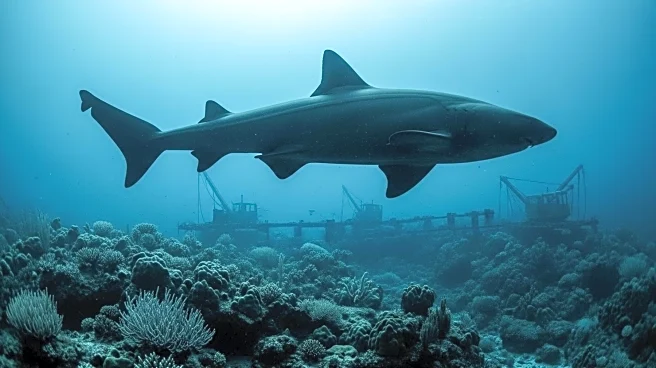What is the story about?
What's Happening?
Marine biologists have raised concerns about the impact of bottom trawling and deep-sea mining on deep-sea shark populations. These sharks, which live under high water pressure near the seafloor, are often caught unintentionally by trawlers targeting other fish. The practice is highly unselective, capturing various non-target species, including endangered sharks. The research, conducted off the coast of Namibia, documented several deep-sea shark species, some previously unrecorded in the area. The study highlights the potential biodiversity loss due to these fishing practices and the looming threat of deep-sea mining, which could further disrupt these fragile ecosystems.
Why It's Important?
The findings underscore the ecological importance of deep-sea sharks and the potential consequences of their decline. These sharks play a crucial role in maintaining the balance of ocean ecosystems. Overfishing and habitat destruction could lead to significant biodiversity loss and ecosystem imbalance. The slow reproductive rates of these sharks mean that population recovery could be prolonged, exacerbating the risk of extinction. The research calls for increased awareness and sustainable fishing practices to protect these species and their habitats.
What's Next?
The research is expected to be published next year, aiming to inform and influence sustainable fishing practices. It may prompt regulatory bodies to consider stricter controls on bottom trawling and deep-sea mining to mitigate their environmental impact. The study could also lead to further research into the ecological roles of deep-sea sharks and the development of conservation strategies to preserve these species and their ecosystems.
Beyond the Headlines
The study highlights ethical considerations regarding the exploitation of deep-sea resources. It raises questions about the balance between economic interests and environmental conservation. The potential irreversible damage to deep-sea ecosystems calls for a reevaluation of current practices and policies to ensure the long-term health of oceanic environments.















